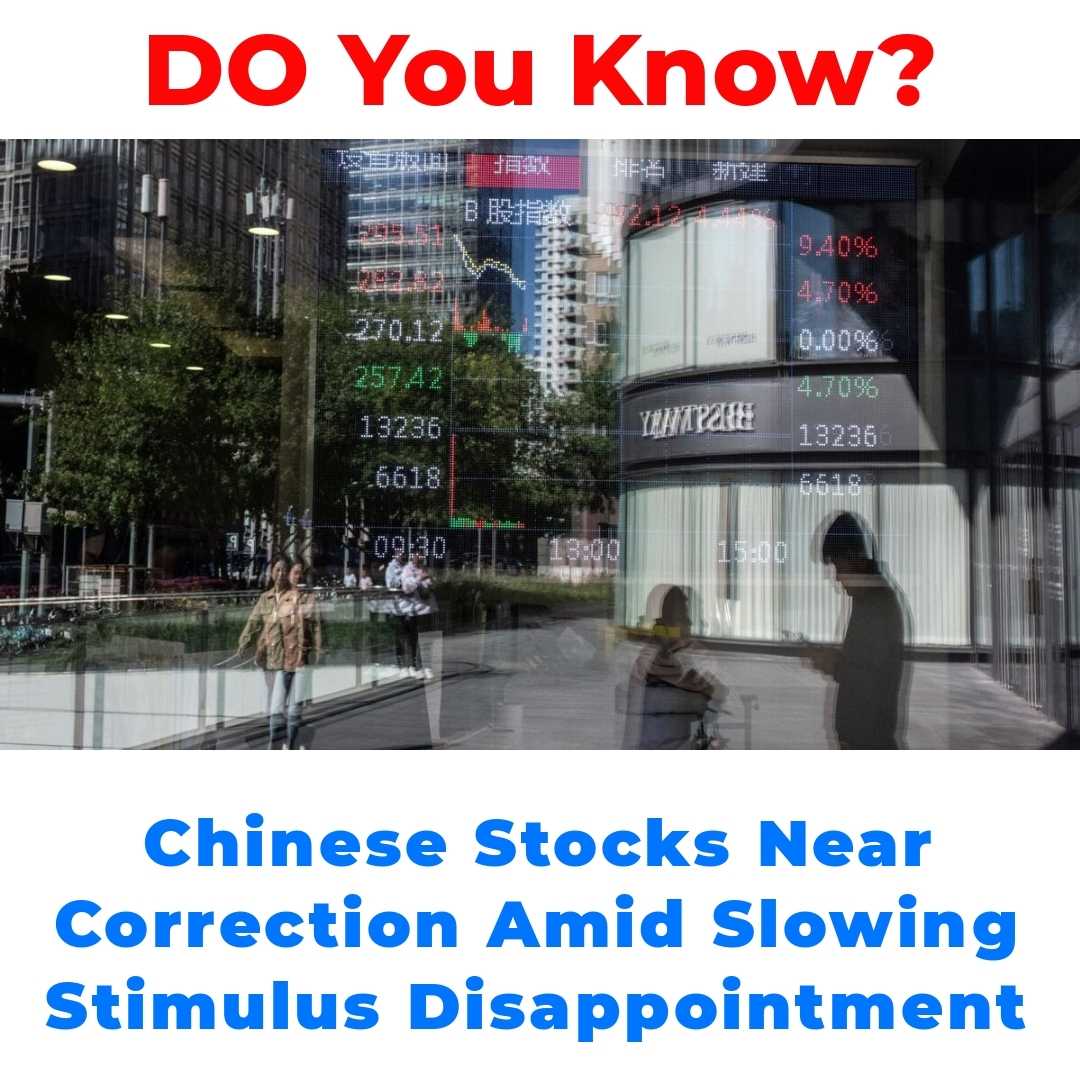The decline of Chinese stocks has raised concerns as the market approaches a potential correction. Investor sentiment is tightly linked to the pace of the stimulus rollout, highlighting how government economic measures can influence market dynamics. Understanding these trends is crucial for grasping the current state of Chinese equities.

Current State of Chinese Stocks
Recent performance metrics show that Chinese stocks, especially major indices like the Shanghai Composite, have experienced noticeable declines. Over the past few months, we’ve seen falls of approximately 20% which many analysts consider a signal of a stock market correction. This increased volatility stems from several factors, including concerns over how effectively China’s economic stimulus measures are being implemented.
When discussing market volatility, it’s worth noting how ancillary elements like investor sentiment significantly influence the performance of Chinese equities. Concerns about the effectiveness of these strategies have led to jittery market conditions that can make investors uneasy.
Reasons for the Drop in Chinese Stocks
To understand the decline in Chinese stocks, let’s examine several contributing factors.
– **Slow Pace of Stimulus Rollout**: Investors were hopeful that the government’s economic stimulus would energize the market quickly. However, the slow rollout has made many feel a disconnect between policy measures and their effective implementation.
– **Global Economic Conditions**: External factors, including inflation and a potential recession in major economies, have also played a role. As global investors recalibrate their strategies, they increasingly view Chinese equities through a cautious lens.
– **Investor Sentiment**: This is crucial. If investors feel uncertain about the economy, they are likely to pull back from the market. This leads to a self-reinforcing cycle of declining prices and deteriorating sentiment.
Understanding the Concept of Stock Market Correction
A stock market correction is generally defined as a decline of 10% or more in a major index from its recent high. For Chinese stocks, this is especially significant considering the market’s high volatility over recent years. Historical precedents, such as the 2015 correction, showcase how quickly investor confidence can erode, sending shockwaves through the market.
Currently, certain indicators such as increased price volatility, declining trade volumes, and negative news cycles suggest that we could be on the brink of another correction in the Chinese stock market.
Impact of Stimulus on Chinese Equities
The impact of China’s economic stimulus on investor confidence has been a topic of discussion. When the government announces stimulus measures, it’s typically intended to stabilize or invigorate the economy. However, if the rollout is perceived as slow or insufficient, investor confidence can wane.
What we might expect from the government’s stimulus plans includes:
– **Increased Market Stability**: If implemented effectively, such measures can bolster liquidity and stabilize stock prices.
– **Improved Economic Outlook**: Successful stimulus could lead to a better economic environment, potentially lifting the fortunes of Chinese equities.
However, any lull in the pace of this rollout can heighten market volatility, making it essential for investors to keep a close watch on government actions and announcements.
Future Outlook for Chinese Stocks
Looking ahead, the future of Chinese stocks may hinge on several pivotal factors. While some analysts believe that a rebound could occur if investor sentiment shifts positively, others warn of the potential for further declines.
Key considerations include:
– **Policy Changes**: Any alteration in fiscal or monetary policy could significantly affect the market. A more aggressive approach to stimulus may help restore confidence and stabilize prices.
– **Monitoring Investor Sentiment**: As we’ve seen, sentiment is a driving force in stock performance. Keeping tabs on investor feelings will be vital for predicting market direction in the coming months.
Conclusion
In summary, the decline of Chinese stocks can be attributed to a mix of slow stimulus rollout, global economic conditions, and shifting investor sentiment. As we navigate through these uncertainties, the government’s approach to economic stimulus will be pivotal in determining the future of Chinese equities. By understanding the factors at play, investors can better prepare for the potential oncoming challenges and opportunities in the market.
Ultimately, keeping an eye on the pulse of investor sentiment and market responses will help reveal the true impact that these economic measures will have on Chinese stocks in the future.
FAQ
What is causing the decline in Chinese stocks?
The decline in Chinese stocks can be attributed to several factors, including:
- Slow pace of stimulus rollout by the government, leading to investor disappointment.
- Global economic conditions such as inflation and potential recessions affecting investor perspective.
- Shifting investor sentiment causing uncertainty and leading to reduced market participation.
What is a stock market correction?
A stock market correction is defined as a decline of 10% or more in a major index from its recent high. This is a significant occurrence in volatile markets like China, where historical trends show rapid shifts in investor confidence can have swift impacts.
How does government stimulus affect Chinese equities?
Government stimulus is expected to:
- Provide market stability by boosting liquidity.
- Improve the overall economic outlook, potentially benefiting Chinese stocks.
However, if the stimulus is seen as slow or inadequate, it can lead to heightened market volatility.
What can we expect for the future of Chinese stocks?
The future outlook for Chinese stocks depends on:
- Policy changes, especially regarding fiscal or monetary strategies.
- The ongoing monitoring of investor sentiment, which plays a crucial role in stock performance.
Analysts are divided on whether a rebound is possible or if further declines might occur.






